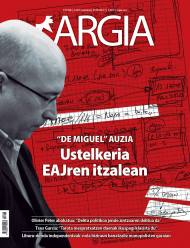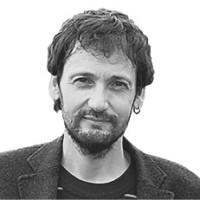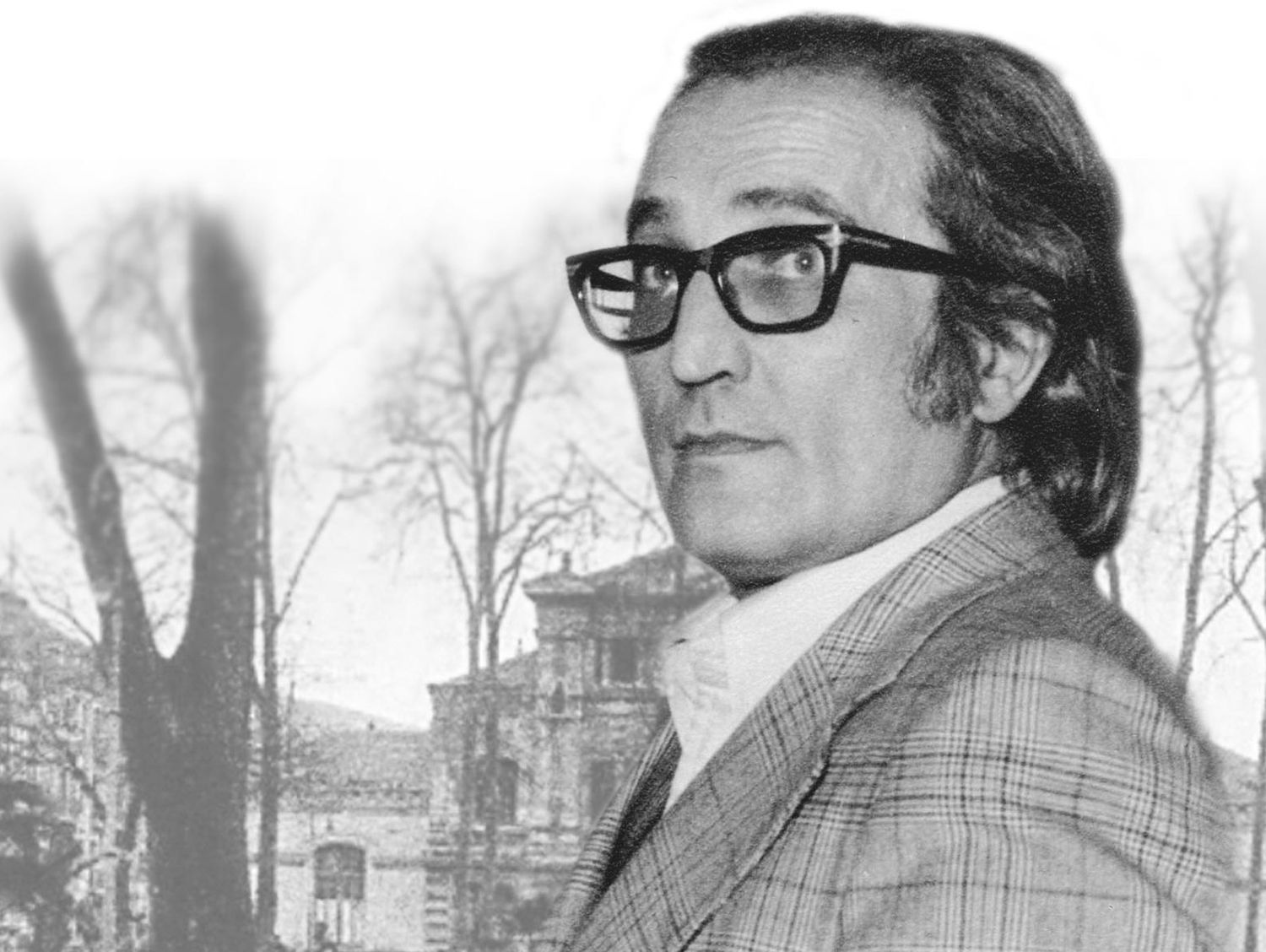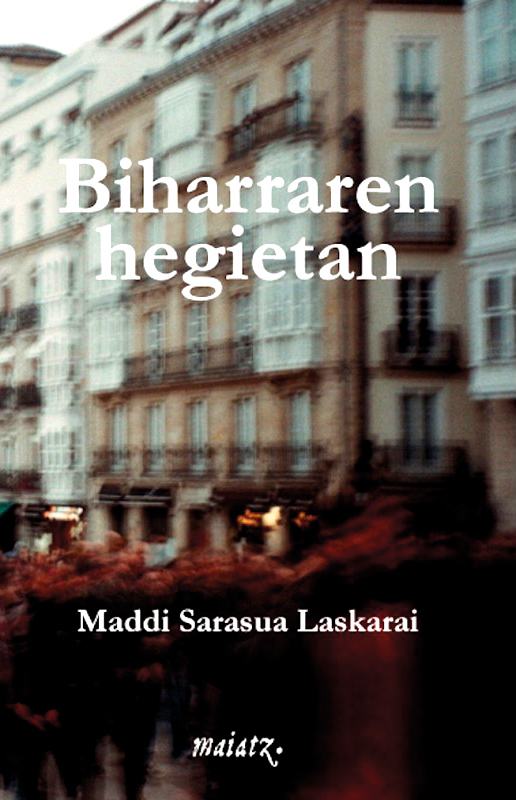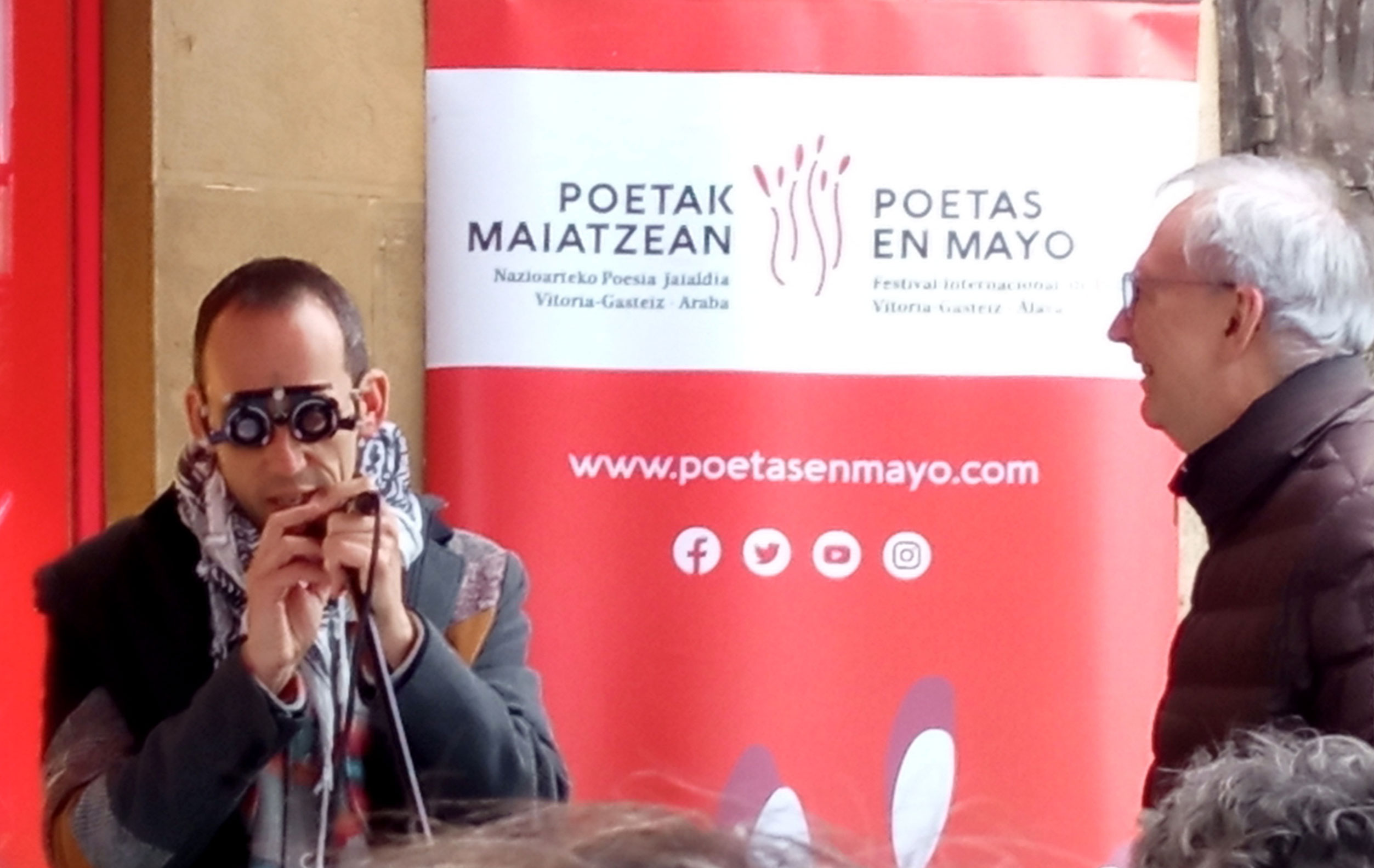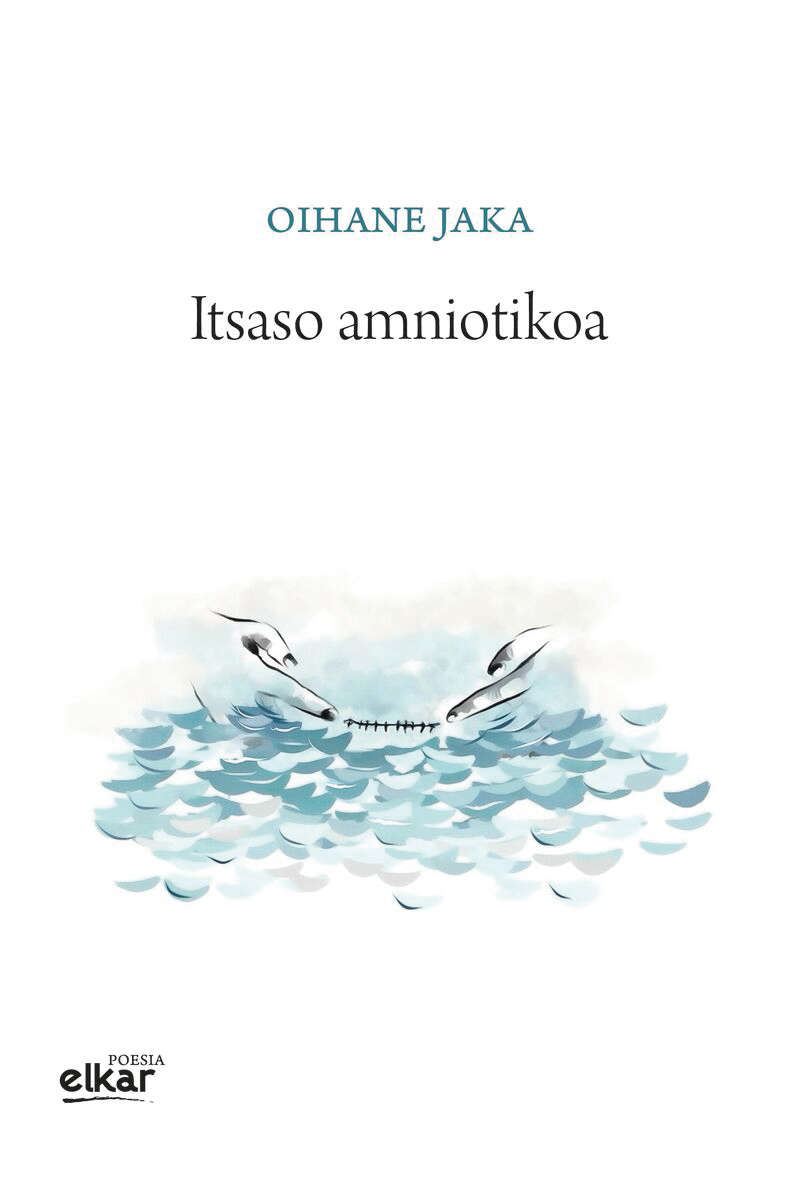"I don't believe in closed meanings, neither in tarot nor in life."
- Rapsoda Txus García and the queer poet bring together many things that they consider to be contrary: speak calmly and passionately. Answer questions with humor and depth. It does so with humility and without shame. And it has some influence on the listener: at least the perfectionist journalist, as soon as he starts talking to him, forgets that he was nervous.
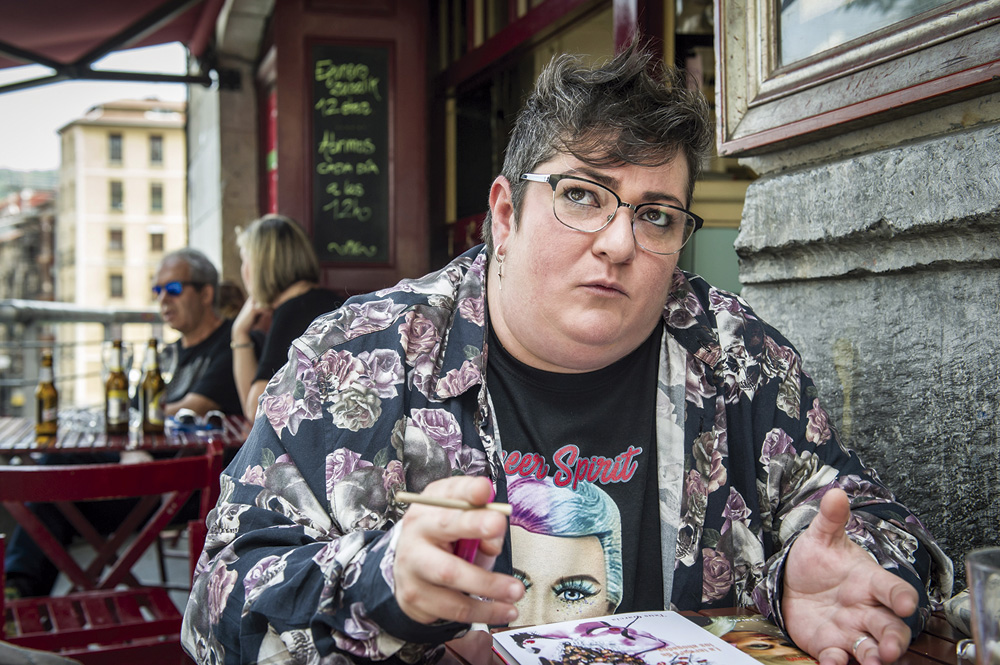
Ogibidez, hezitzaile sozio-kulturala; pasioz, komunikatzailea eta rapsoda. Hogei urtetik gora egin du jendaurrean testuak irakurtzen eta performanceak egiten, eta bi poema liburu argitaratu ditu: Poesía para niñas bien (Cangrejo Pistolero Ediciones, 2011) eta Este torcido amor (Edicions Bellaterra, 2018). Denbora librean, gainera, tarot-saioak egiten ditu.Bere webgunea: txusgarcia.com.
You say you're a rapsoda. Why?
I think of myself as a rapsody, before a poet or anything else, because I've been reading the texts aloud for many years, and for me it's a rapsody, reading the texts so that they reach people directly. I drink from the source of the trovators: the trovators went out to the plaza and found very diverse people – not a literary audience – and sent a message in a pleasant and humbling way.
There's a difference between writing and reading in public: the body. You put it there, uncovered.
The body filter is very important to me, I use the gestures of the face a lot and I move a lot. It seems to me that this is how the message comes in a much more powerful way. I try to flesh out the word, turn it into an echo and bring that vibration to people. It seems a bit mystical, but when I'm reciting, I pay a lot of attention to the energy of the people, to the things that happen: the work and I incorporate them. When I recite, I am not reading in a vacuum, but actively listening.
And the voice?
They say it's a great acceptance exercise to listen and like your voice from the outside. They say that the more you worship yourself, the better we accept our voice. I myself have come a path with my voice. I have a slightly quirky voice. Because I have this big body, people think I'm going to have a terrible, deep voice, but it's not. I also play with vitality. I remember my mother sent me to buy bread at the age of 12. I am very shy and at that time I had an even more acute voice. I asked for the bread with great reluctance and some of those who were there laughed at me. I felt ridiculous, humiliated, very bad. I decided not to speak again in public. Until one day I thought yes, I was going to start speaking in public, as I read at home aloud, and since then I have worked my voice, I have wanted, I have measured… I think I can do many things with my voice. It's a tool that serves me to emote people, make them laugh or cry, and today it's part of my self-esteem.
You're presenting your second book of poems and so you've called the presentation tour: “Mother, look what a strange woman!” Have you assimilated what you said from the outside?
It has been a road. At first it was the mouthpiece of the people, or rather, the tortilla of the people. I've been making these terms mine, because it's fun and they serve you protection and message. And then I grew up and I got to that thing of queerness, and then it was queerness, because it was more cool, and I got pretty good at queerture, as essence or as an idea. But now I've become old, I'm 44, and look, queer doesn't work so well for me, I can't cut my hair any way anymore [laughter].

And what is that queer essence for you?
For me, it's queering the personal decision to do and enjoy what you want in life. A complete happiness, both in form and in content, and that you be completely and deep yourself all the time, with all your rarity. So, and pulling the previous question, now that I've grown older, I'm a strange woman: neither meat nor fish, neither the opposite; the masculine, the feminine, or both at once. Today it is the label of the strange woman that I feel the closest. Tomorrow, who knows.
The second series of poems is more intimate than the previous one.
I wrote the first book seven years ago, and as I always say, life is made up of a seven-year cycle. In these seven years many powerful things have happened to me: I have married twice and I have separated twice, the crisis has affected me directly, the bank has taken away my house, I have run out of work, on the street, people have taken me… All of this has affected this second book. But the book doesn't depress you, I always put a pinch of humor, a counterpoint. Because life also gives those kinds of traits, to navigate in darker emotions.
You've evoked our ancestors in different poems.
I have paid tribute to what I have received. Suddenly you stop fighting with everything you've been and they've given you, you realize you're taking positions of mother or father. And that's when you decide not to take it back, put it in you and thank you, because there are things that we've taken to the foot, useful and good and practical, although we reject them, especially when we're younger. So I've done that, a family tree like this, but through poems, and in the end I've freed my parents with all responsibility. I have a burden that I don't want to carry with me and I've left it where it is, but my life starts with me. And it's helped me recover positive things.
What has he recovered?
There is, above all, a will and a desire to live and to flee poverty. In my family, there have been no bankers or offices: they have all been people of land and sea, workers. Moreover, I was the first to go to college. I know what it's like to work and suffer, I know the misery of life, and that's why I'm grateful, because my ancestors have given me tools to keep joining the earth and humanity.
In addition to writing and performing, you're an atherologist. You talk to someone who barely knows the pie, except for the prejudices of always. What is tarot?
Tarot are small papers with small drawings. And it's over. In this case, it is a deck. I use the Marseilles tarota, the most original, the simplest. It comes from the Middle Ages and takes advantage of the imaginary of the time. It has 22 cards and each one has its meaning, but I don't believe in closed meanings, neither in tarot nor in life, so it depends on the person in front of me. In short, tarot is an instrument.
What is it for?
On tarotets I have a coffee with that that has touched me. So, it's a conversation, and I use the tarota to clarify what this person is living. I'm not a fan, I'm not a medium, I'm not a fan. I accompany that person in his process. Sometimes there are knots in our lives, and I help that person pull the thread, because sometimes it's hard to see things when you're inside. I install myself outside, with an instrument, and thanks to it, I don't know exactly how, and I don't care, but thanks to that tool, the person suddenly sees a lot of clear things. I do not judge anything and I do not give any advice.
.jpg)
Suppose I'm going to make a tarot with you. What should I do, explain my situation?
No, I am not interested in you telling us your point of view, or giving us a lot of data. You have to ask me a specific question. This is very important, because you have to think about the question, you're going to figure out what the problem is, and that's very useful. Once the question has been asked, I will put three letters to you. I'll look at the letters, I'll look at you, and I'll start talking, but I'll hear you actively. Those three letters form a story like this, and as I'm a storyteller, because with these three drawings, I'm going to spin a story, and I don't know how, but interesting things are going to come out, and you're going to see some clear things. Those who do tarot with me always leave the program and home work happy.
You have denounced the influence of patriarchy in the tarot.
Society in general has a need to classify people and put labels, which does not favor the arts of divination. The divination arts are as old as men. Because human beings have never been able to live knowing what we only knew, we have always wanted to investigate and know more, out of fear of the things that were going to happen to us. In the Bible, that's shown constantly. The point is that many people have benefited from that need and fear of human beings, and have completely distorted what the arts should be. From my point of view, the tarota is that intimate moment in which you accompany a person: having coffee with that person and accompanying them on their own to explain and decide what they want to do.
So, as for the influence of the heteropatriarchate, there are two questions: on the one hand, as a user, when they make you the tarot, if you are a woman and a relationship appears to you, it is always concluded that you relate to men, without having consulted before. If from the beginning it is concluded that you are something that you are not, how on earth will you communicate? On the other hand, it seems that the atherologists can only be of two kinds: otherwise they are not credible: fully normativist women with loose or maric hair with an impressive pen.
There are also prejudices about Tarot users.
Tarot users are mainly women, as women have always had to look for their own spaces to listen and be experts. And for this, the tarota offers a beautiful space, as the Church once offered. In addition, in the tarot, besides explaining and listening to it, you can know what is going to happen and the cure will not give it to you. And in the tarot, no one will tell you that I don't know how many parents your sins lick on you. It is a suitable place for emptying, especially for isolated women. So, it seems to me that people who despise tarot have a classicist, unrealistic view at all. These kinds of spaces have to be maintained, they're urgent.
You are an educator by profession.
Yes. I have worked for four years on a Generalitat project. It's called Xarxa Omnia, and it's a free space for citizens to access the Internet. People can go and learn basic things about ICT. I am in the Gracia district of Barcelona, one of the main centres of the Roma community of Barcelona, and therefore my place of work is managed by the Federation of Roma Associations of Catalonia. They are, so to speak, my second boss, but for me, they are the first and most important, because I work with them.
What have you learned in these four years?
I arrived there as a savior, with all my privileges, and the Generalitat presented me everything with the intention of organizing it: doing workshops, preparing activities… All very nice. But I got there and I found reality. It was a tremendous blow. Of course, no one needed me there, and no one wanted me. It was difficult. I had to go down to the ground again and look and hear and silence. That's all very important, and that's what I did. Put aside my privileges and start from scratch. Hold on. That's the key. I've learned a lot, I've learned from myself, and I'm learning to be alert, to listen, not to put my nose where it doesn't touch me, not to speak in a language that's not mine, not to take their customs -- because I'm not a Gypsy -- and many other things. Now I'm fine, happy, in harmony with the environment. I have my space, people can come in and out in the letter, and I think it's a victory.
I mean, you don't want to be aware of the personality of those people who are like yourself.
No, no. What matters to me is that I now have a role in the community, which I'm useful. My job is to have the door open and receive and respond to the requests that come to me, whatever it is: filling in requests, listening to a particular problem of a family, requesting a medical appointment… Everything that is needed. It is my duty and I am also pleased.

Askotariko tokitan aritu da Txus García errezitatzen: autobusetan, metro-geltokietan, tabernetan… Baina zelakoa behar du toki batek, han gustura errezita dezan? “Sare afektibo bat. Zahartu ahala gero eta garrantzi handiagoa ematen diot horri. Behar dut euskarri bat eta maitasun polita emango didaten pertsonak. Haiek nahi izatea ni han egon nadin. Garrantzitsua da hori, oholtza ederrak edo argi txundigarriak baino askoz garrantzitsuagoa. Filtro hori erabiltzen dut aurrena”.
Entrepreneurship is fashionable. The concept has gained strength and has spread far beyond economic vocabulary. Just do it: do it no more. But let us not forget: the slogan comes from the propaganda world. Is the disguise of the word being active buyers? Today's entrepreneurs are... [+]
Spring is usually a promise of a cold winter nose that can come after the landing, and has been annotated several times for sleep. Promise, however, is never a safe spring in a ruined terrain. Not at least if we are talking about change or, in particular, revolution. Maddi... [+]
We opened the poems book by Oihana Jaka and found two deals. One father and another son. It is worth noting for its direct relationship with the poems we will find. The book is structured in three parts:
Hamaika urte, Hamaika hilabete eta Hamaika egun. Number eleven is also... [+]
Yolanda Castaño has been interviewed since she received the Spanish National Poetry Prize. The head of a row from one of them caught my attention because he said the second hardest thing he's ever done is win the prize. And I immediately began to look for what was the hardest... [+]
A few years ago, I wrote a little book about Tene Mujika, which is called Udazken Argitan. When I started doing that biographical essay, I met our protagonist today, Mr. Watson Kirkconnell. In 1928, Kirkconnell published a nice book of European Elect anthology, which included... [+]
I do not remember who I heard that at the end of the month you can only write poetry, if poetry is not your way to the end of the month. Poetry, fortunately or unfortunately, has always been on the periphery of the literary system and the cultural industry. In any case, poets... [+]
Juan Margarita fuse architecture and poetry. They asked about the relationship between both disciplines, in the belief that the unification of these two practices was exceptional. In these cases, she answered that both areas had great similarities, since for Margarita, both the... [+]









